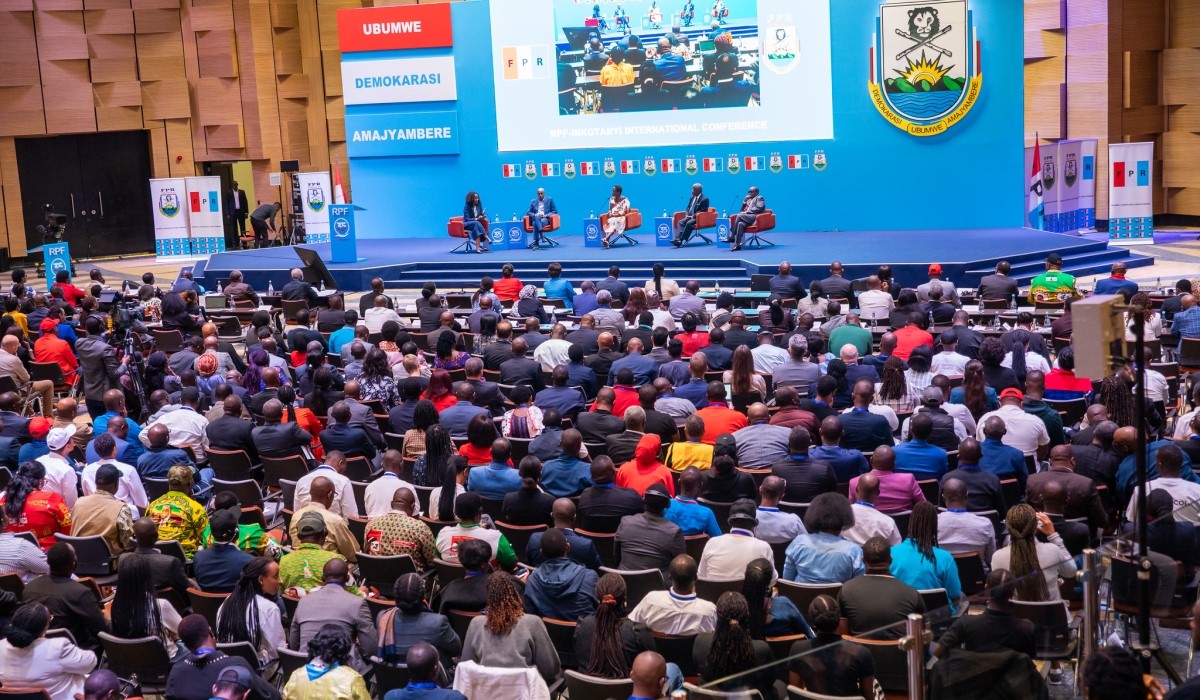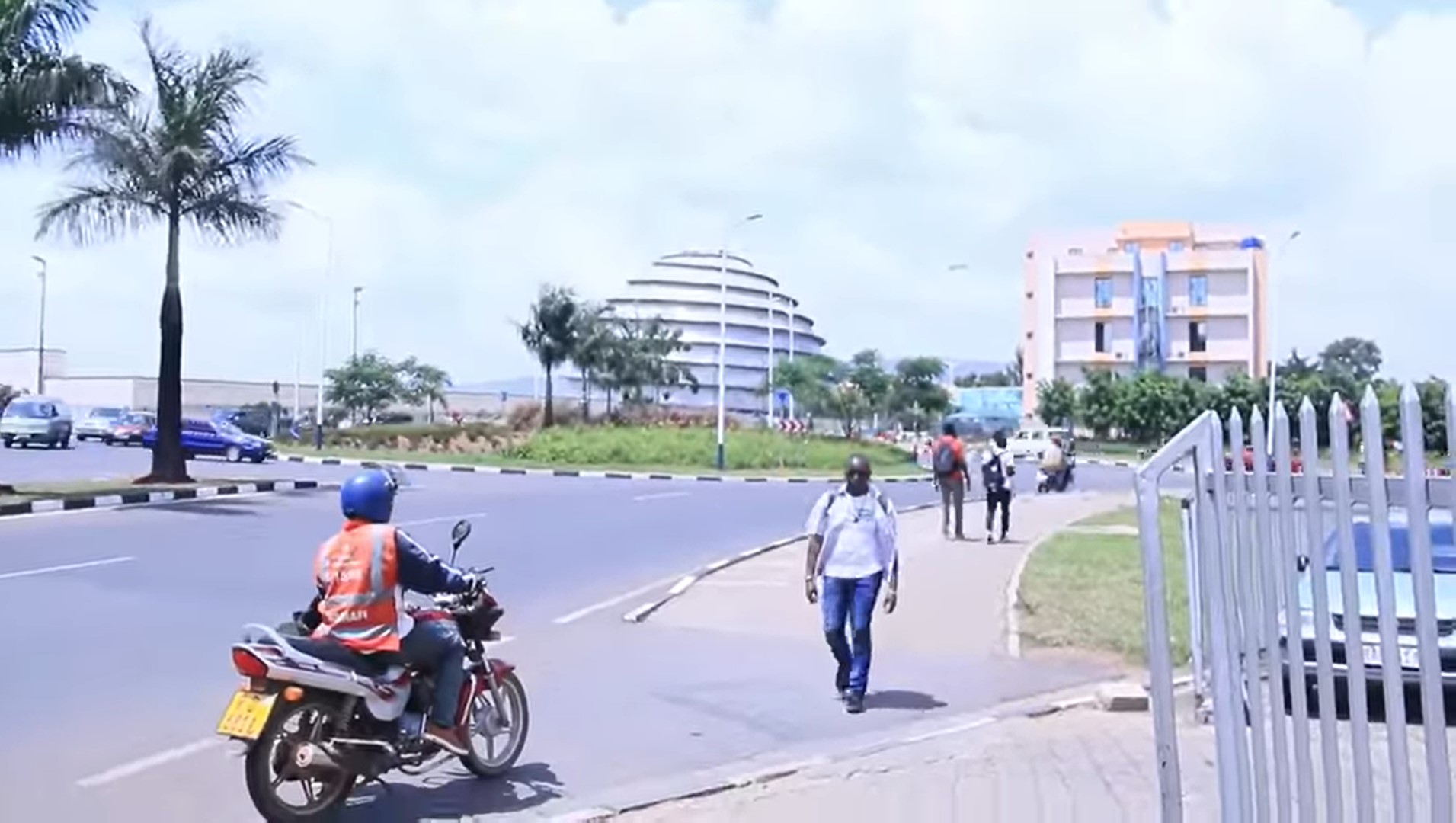Optinion
African solutions to African problems, Rwanda showing the way

Coined
in 1994 by Ghanaian eminent political economist George Ayittey, following the US
withdrawal from war-torn Somalia, the slogan ‘African solutions to African problems’
has been adopted by Rwandan President Paul Kagame and some other African
leaders and used to find suitable solutions for African problems, the African
way.
Following
the 1994 genocide against the Tutsi in Rwanda during which the international
community stood by and watched as over one million Tutsi were exterminated, it became
clear that African countries cannot always rely solely on external forces to resolve
their conflicts or deal with their problems.
The RPF-Inkotanyi
led by President Kagame stopped the genocide without any international assistance.
In
1996 and 1997, the same international community idly stood by when genocidal
forces crossed over the border from DRC to Rwanda, to fight and sabotage the
new government, and terrorize civilians who were trying to rebuild their lives.
But RPF managed to handle their resurgence.
Rwanda
heavily invested in the training and capabilities of its army, and stable
politics, which helps the country to stand secure today.
Driven
by the lessons learned during and after the 1994 Genocide and the spirit of
African solidarity, Rwanda broadened its army’s capabilities and committed to help
other African nations fight terrorism and insurgency through bilateral or
multilateral missions.
The country’s
army provided security in the Central African Republic through the UN
peacekeeping mission (MINUSCA) since 2014 and through a bilateral agreement on
defense in 2020. Both missions helped to stabilize and restore peace in a war-torn
CAR.
In
2021, Rwanda deployed its troops to Cabo Delgado province of northern Mozambique
to quell violence and fight terrorism. In only one month, Rwandan and
Mozambican contingents kicked out the al-Shabab-linked terrorist who had
wreaked havoc in the region for years, and seized an important northern
Mozambican port of Mocimboa da Praia, among other former terrorist strongholds.
Rwanda
helped Mozambique to fight the terrorists, stabilize the area and restore the
authority of the state.
To
date, Rwanda, with a population of just over 13 million, is the fourth-largest
troop contributor to UN missions worldwide, and the first-largest from Africa.
Related: Rwanda’s
military intervention in Africa rebrands continent’s image
Not
only does Rwanda contribute to providing security in Africa but it also leads
the way in receiving migrants from crisis situations in its near neighbors and
refugees on the African continent, and as far as Afghanistan.
In 2019,
Rwanda made the commitment to host African refugees stuck in Libya, after their
desperate journeys to seek asylum in European countries were cut short when
European nations imposed migrant controls. The country signed an agreement with
the African Union, and the UN to evacuate migrants from Libya where they were
and continue being subjected to slavery, human trafficking, abuse, and rape.
Rwanda
hosts more than 1,400 refugees and asylum seekers evacuated from Libya. They are protected and facilitated in
different ways including health, security, in addition to being given trainings
necessary to help them improve their welfare. Despite its limited resources,
Rwanda is dedicated to transforming Africa into a self-reliant continent.
During
the Covid-19 pandemic, Africa was hit hard as it relies mostly on imported
pharmaceutical products – imports 99% of the vaccines it uses. When the whole
world was craving for vaccines, Africa remained vulnerable. The continent did
not have the means to produce its own vaccines nor buy the required doses for
its 1.3 billion population.
To
deal with the continent’s dependence on foreign vaccines, in 2021, Rwanda was
among the three African nations chosen to host BioNTech's first vaccine
production facilities in Africa.
In
March 2023, the country received six shipping containers for the first
BioNTainer, the infrastructure needed to introduce the mRNA vaccine production
facility in Africa.
This
move marked a significant milestone on the continent. It highlighted how
possible it is for Africa to achieve health security.
Related: BioNTech
in Rwanda, a game changer in Africa’s health sector
The country is proving wrong all the people who thought
that “African solutions to African problems” is unrealistic because it is not
reflective of the present realities of Africa.
Notwithstanding
its small size, Rwanda has proved that
there is no small country, or few resources, that can limit or hold Africa back
from finding its own solutions. Only political will and commitment are needed
to address the continent’s problems.
In January 2013, while in Davos, President Paul Kagame
challenged CEOs attending the World Economic Forum to look beyond the rhetoric
of risk that often surrounds Africa.
Kagame said: “The major problem is that Africa’s story is
written from somewhere else and not by African themselves. That is why the rest
of the world looks at Africa and wants to define it. They want to shape the
perception about Africa.
"The best we can do for ourselves is to own our problems,
own our solutions and write our stories. That will also give us the right
definition about the level of risks, real risks and the perception part of it
will also be put in its right place."






